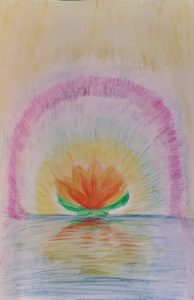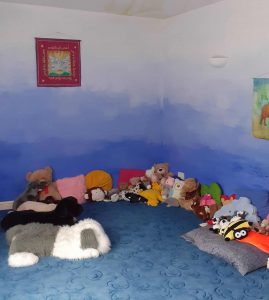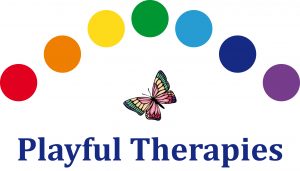Who I Am
- I hold a Diploma in Autistic Spectrum Therapies with The Light of Hope Trust
- I hold a Post Graduate Certificate in Therapeutic Play awarded by PTUK
- I have been a Children’s Peer Support Bereavement Facilitator with Noah’s Ark in Halifax
- I am a mum of three children, two of whom have diagnoses of ADHD/ dyslexia
- I have experience supporting other family members with autism/neurodiversity

Who I can Help
Children with the following conditions can develop increased regulation after having therapeutic play:
-
-
- Anxiety and Depression
- Traumatic Bereavement
- Autistic Spectrum Disorders
- ADHD
- Low Confidence & Self-Esteem
-
Play Therapy helps Children to:
-
-
- Become more responsible for behaviors and develop more successful strategies.
- Develop new and creative solutions to problems.
- Develop respect and acceptance of self and others.
- Learn to experience and express emotion.
- Cultivate empathy and respect for thoughts and feelings of others (Link)
-
Therapeutic Play is about getting better at feelings, as well as feeling better.
Here is a link to a study from the US National Library of Medicine who say :
‘Play as a therapeutic strategy can help to improve daily functioning in children and adolescents with autism spectrum disorder (ASD). Play-based intervention can thus be an optimal option for treatment of this population.’
Lets begin your child’s healing journey today.
Contact me at
fiona@fionamerritt.org.uk
What I Do
I use a range of wellbeing techniques including reflexology (gentle foot massage), energy healing, creative visualisation and therapeutic play to support children to process the challenges they are experiencing in their life and help them to become happier.
 These techniques will help build balance and promote feelings of peace, centredness, and concentration.
These techniques will help build balance and promote feelings of peace, centredness, and concentration.
My playroom contains natural materials including sand, toys, instruments, puppets and art equipment that will help your child to explore and find ways of playing out their feelings. These materials will act as a vehicle of expression supporting children process and integrate the challenges they are experiencing.
Over time, their sessions with me can help to calm any worries or fears your child may have and enable them to be able to cope better with potentially challenging situations. Children often find it difficult to express their feelings and experiences into words.
Play is the language of children.
Therapeutic play, relaxation techniques and fun create positive circuitry in the brain.
Children will feel safer and more validated after experiencing sessions with my Playful Therapies technique, and will be better able to learn and thrive.
Lucy Harper, the SENDCo at Luddendenfoot Academy, found my therapeutic play work very beneficial to all the children involved. She said:
“Fiona genuinely cares about the children that she works with, and they have thrived within the warm, safe, judgement-free environment that she has provided.”
Please be reassured that your child will be treated with gentleness, kindness and respect throughout their time with me.
Virginia Axline’s Principles
Virginia Axline was the therapist who founded the Play Therapy technique. She was a student of Carl Rogers and they wrote a paper together. Out of this collaboration Virginia formulated her eight principles:
-
-
- The therapist must develop a warm, friendly relationship with the child, in which good rapport is established as soon as possible.
- The therapist accepts the child exactly as he is
- The therapist establishes a feeling of permissiveness in the relationship so that the child feels free to express his feelings completely.
- The therapist is alert to recognise the feelings the child is expressing and reflects those feelings back to him In such a manner that he gains insight into his behaviour.
- The therapist maintains a deep respect for the child’s ability to solve his own problems if given an opportunity to do so. Their responsibility to make choices and to institute change is the child’s.
- The therapist does not attempt to direct the child’s actions or conversation in any manner. The child leads the way; the therapist follows.
- The therapist does not attempt to hurry the therapy along. It is a gradual process and is recognised as such by the therapist.
- The therapist establishes only those limitations that are necessary to anchor the therapy in the world of reality and to make the child aware of his responsibility in the relationship.
-
From Play Therapy by Virginia Axline (1947)
These are the principles that I work with in my playroom:
Where I Work
I offer my Autistic Spectrum Therapeutic Play technique in the very special children’s room at the Hebden Therapy Centre in Calderdale, located between Halifax and Burnley.
It is a beautiful and peaceful space with cushions and soft carpeting especially designed to bring calm and wellbeing to children.

I am also available to work in schools in the Upper Calderdale, Halifax, Rochdale and Burnley.
I hold an enhanced DBS certificate and current insurance.
Fiona Merritt, BSc.
Diploma in Autistic Spectrum Therapies
Diploma in Reflexology
Post Graduate Certificate in Therapeutic Play
fiona@fionamerritt.org.uk
Please do get in touch for a confidential discussion about your child.
Begin your child’s healing journey today.

